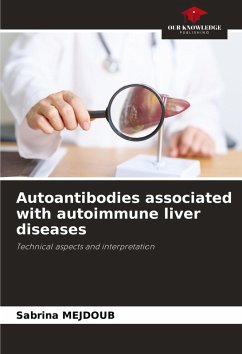
Autoimmune Diseases
Immunology
Versandkostenfrei!
Versandfertig in 6-10 Tagen
33,99 €
inkl. MwSt.

PAYBACK Punkte
17 °P sammeln!
An autoimmune disease develops when your immune system, which defends your body against disease, decides your healthy cells are foreign. As a result, your immune system attacks healthy cells. Depending on the type, an autoimmune disease can affect one or many different types of body tissue. It can also cause abnormal organ growth and changes in organ function. Thus an autoimmune disease is a pathological state arising from an abnormal immune response of the body to substances and tissues that are normally present in the body. Autoimmunity, on the other hand, is the presence of self-reactive im...
An autoimmune disease develops when your immune system, which defends your body against disease, decides your healthy cells are foreign. As a result, your immune system attacks healthy cells. Depending on the type, an autoimmune disease can affect one or many different types of body tissue. It can also cause abnormal organ growth and changes in organ function. Thus an autoimmune disease is a pathological state arising from an abnormal immune response of the body to substances and tissues that are normally present in the body. Autoimmunity, on the other hand, is the presence of self-reactive immune response (e.g., auto-antibodies, self-reactive T-cells), with or without damage or pathology resulting from it. This may be restricted to certain organs (e.g. in autoimmune thyroiditis) or involve a particular tissue in different places (e.g. Goodpasture's disease which may affect the basement membrane in both the lung and the kidney).












